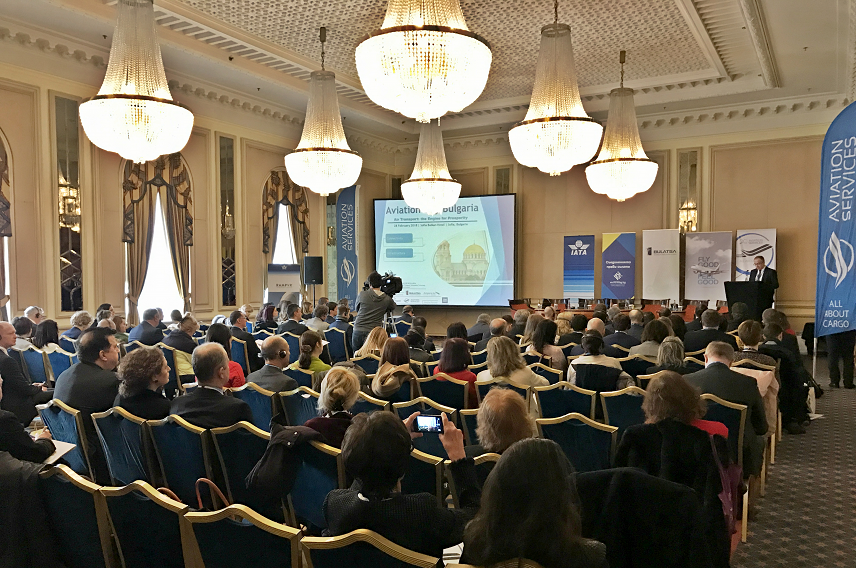
Aviation Days are a fantastic opportunity to gather around the table stakeholders across the aviation value chain as well as policy-makers and regulators, to discuss best practices and raise awareness of aviation’s role, and the challenges faced by the sector. IATA organizes them regularly around the world, and the latest one in Europe was held in Bulgaria on 28 February 2018.

Why Bulgaria?
In fact, Bulgaria is in an important position, politically and geographically. Politically, it holds the rotating Presidency of the European Union for the first six months of 2018. And one of Bulgaria’s priorities for its Presidency is to push a connectivity agenda. So our Aviation Day was an important opportunity to push the government to put the industry’s competitiveness at the heart of its agenda. “There is an urgent need to strategically plan the capacity needed to accommodate growing demand for global connectivity, environmental improvements, and infrastructure cost regulation,” said Rafael Schvartzman, IATA’s Regional Vice President for Europe. “And operating an airline in Europe is challenging. There are high costs and regulatory burdens. Infrastructure capacity is often not sufficient, and the passenger charges at airports have doubled in the last decade.”
These issues were acknowledged in the keynote speech from the Deputy Minister for Transport, Information Technology and Communications for Bulgaria, Velik Zancev.
“We believe that Europe's air transport should focus on mobilizing resources and efforts to modernize infrastructure, deploy new technologies and improve connectivity,” said Deputy Minister Zancev, who also noted the economic benefits of coordination between the airline community, aviation stakeholders, and the regulatory authorities. He was also clear on the economic and social benefits of aviation, and the sector’s commitment to sustainability: “The economic contribution of aviation supports further spheres of the economy: tourism, cargo operations and greater exchange on political, cultural and social levels. Aviation also plays its part in sustainability to ensure environmental and noise impacts are addressed,” he said.

Mr. Velik Zancev, Deputy Minister for Transport, Information Technology and Communications for Bulgaria
Geographically, Bulgaria occupies a strategically important position as the gateway from Europe to Turkey, and beyond to Asia. It is also a fast-growing market in its own right, with passenger numbers set to double over the next 20 years. So the announcement that IATA and BULATSA (Bulgaria’s air navigation service provider) have agreed to work together to deliver and implement a national airspace strategy is good news for the economy and for European air connectivity as a whole. “Building a National Airspace Strategy is the central element for Bulgaria to ensure the country can cope with the future growth and traffic increase we expect in the coming decades. This commitment from Bulgaria is a strong message to the international community that Bulgaria is focused on maintaining the strategic importance of its airspace,” said Deputy Minister Zancev.

Mr. Alex Bogoyavlenski (Producer and host of the Air Show program on Bulgaria ON AIR TV) tests IATA’s award-winning virtual reality training tool RampVR with Ms. Ana Ysabel Soriano (Product Manager, Passenger Experience and Digital Training)